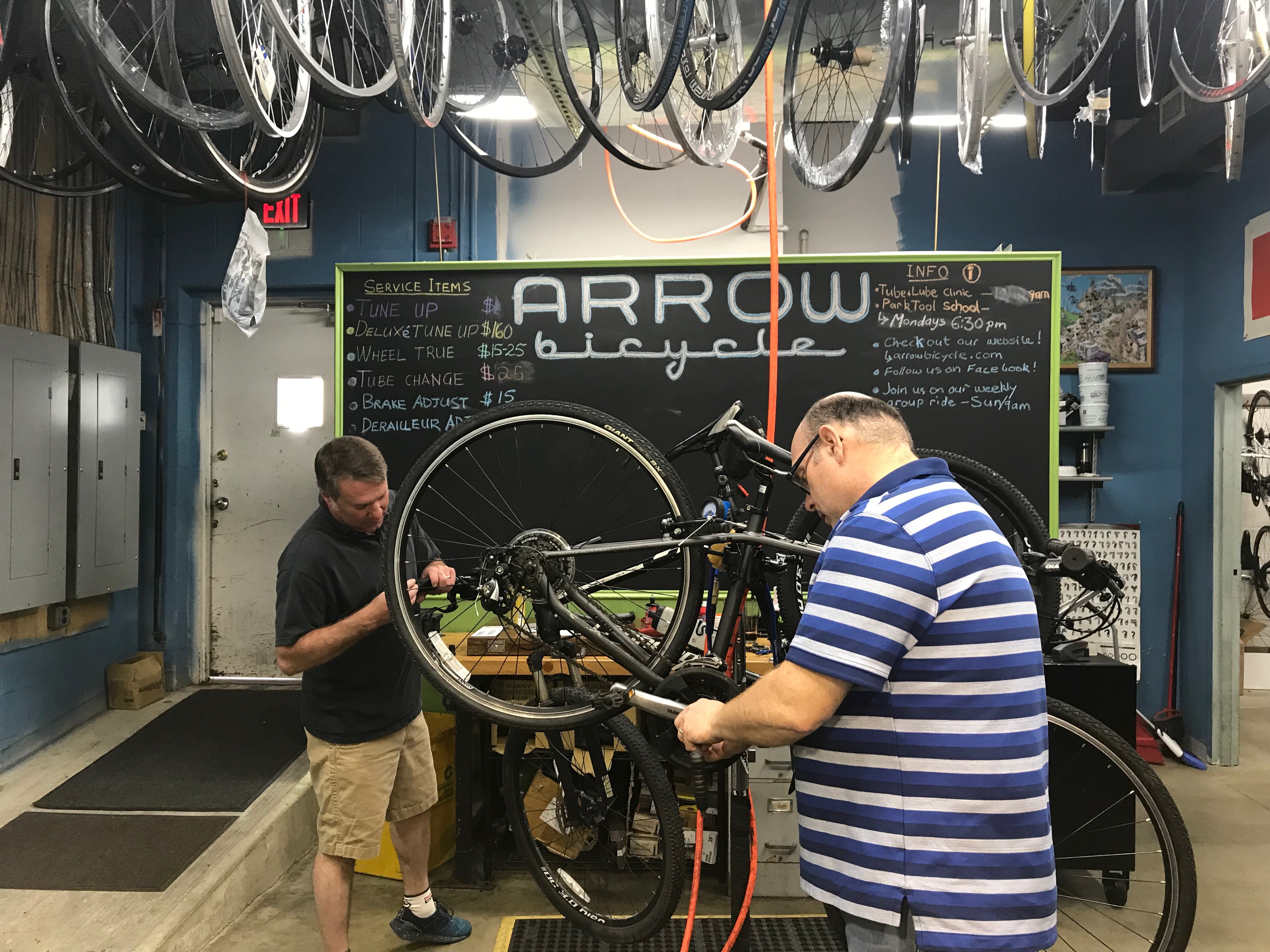By Samantha Hawkins
For The Diamondback
Larry Black founded College Park Bicycles 40 years ago, when he converted a burned-down laundromat on Route 1 into a small bike shop with no plumbing.
“I didn’t know anything about business, but I knew about bikes and I liked people,” Black said.
Over the course of those years, Black learned something about business — his mom and pop bike shop is still around today, while other local bike shops around the nation are shutting down.
In 2015, there were fewer than 4,000 bike shops left in the U.S.; about 1,000 have been lost since 2000, according to estimates from the National Bike Dealer Association. But recent Georger Data Service research reports that there are more than 7,000 bike shops, and they aren’t decreasing — they are on the rise.
“The bicycle industry is changing just like any other retail-based speciality industry in the world — but slower,” said Ray Keener, executive director of Bicycle Product Suppliers Association. Keener said the reason it hasn’t happened sooner is the complexity of bicycles.
“It’s not like buying a book or a CD player,” Keener said.
[Read more: UMD DOTS plans to sell unwanted bikes to students next fall]
People still need mechanics, but local shops now struggle to make a profit off equipment. Customers can get gear online for less money than a retailer can purchase it for.
“We can’t compete with Amazon,” said Paul Lemieux, manager at Proteus Bicycles, another College Park bike shop founded in the 70s. “But if you’re smart, you can survive.”
In December, Proteus Bicycles moved from its longtime location on Route 1 to Rhode Island Avenue — a few doors down from MOM’s Organic Market, which brings people wandering into Proteus Bicycles from all over town. A coffee shop is being built in the back of the new location, an idea that many other bike shops may adopt to bring in extra revenue.
Proteus Bicycles is also about to launch an online store, while College Park Bicycles has begun to sell on eBay and Arrow Bicycle in Hyattsville already has their merchandise online.
“The common wisdom is: If you can’t beat ‘em, join ‘em,” said Keener, who advocates for bike shops to change their tune in order stay afloat.
[Read more: College Park residents could soon leave their bike-share rides anywhere in the city]
Arrow Bicycle, founded in 2008 by Chris Militello and Chris Davidson, has found its own innovative solutions to make a profit. The business contracts itself out to municipalities to install and procure bike racks and to D.C.’s police department to do preventative maintenance on their bike fleet.
“We knew coming into the industry we weren’t going to be millionaires,” Militello said. “But we wanted to work in our community.”
Ivan Reimers, an avid cyclist and mechanic at the University Recreation and Wellness bike shop, points out that this university is rated “gold” in bike-friendly campuses by the League of American Bicyclists. But the rest of College Park, he said, is a different story.
Large and busy roads and disconnected bike paths don’t provide students with a safe commute to school. But lately, things have been improving, he said.
“It’s really changing towards trying to adapt to a growing commuter base,” said Reimers, a senior agricultural and resource economics major.
A project expanding Little Paint Branch Trail is expected to be completed in May. The extension will allow someone to bike from D.C. to Beltsville on almost all paved trails, and the city also plans to expand Route 1 to include bike lanes, something that “should have happened much sooner,” said Militello.
“We’re playing catch-up for the amount of cyclists we have,” he said.
Despite extra construction and traffic, local bike shops are excited about the new bike lanes that will allow people to safely bike around the city, which will increase the number of people who rely on bike shops.
“It’s like a gateway drug,” Militello said, reasoning that exposure to bikes gets people hooked on the sport.
As local shops are doing what they can to adapt to the shifting industry, their future is uncertain. But Black ’s not going anywhere.
“We are sticking it out,” Black said. “It doesn’t take a lot to get into the bike business. But to stay in the bike business — that’s a different story.”



